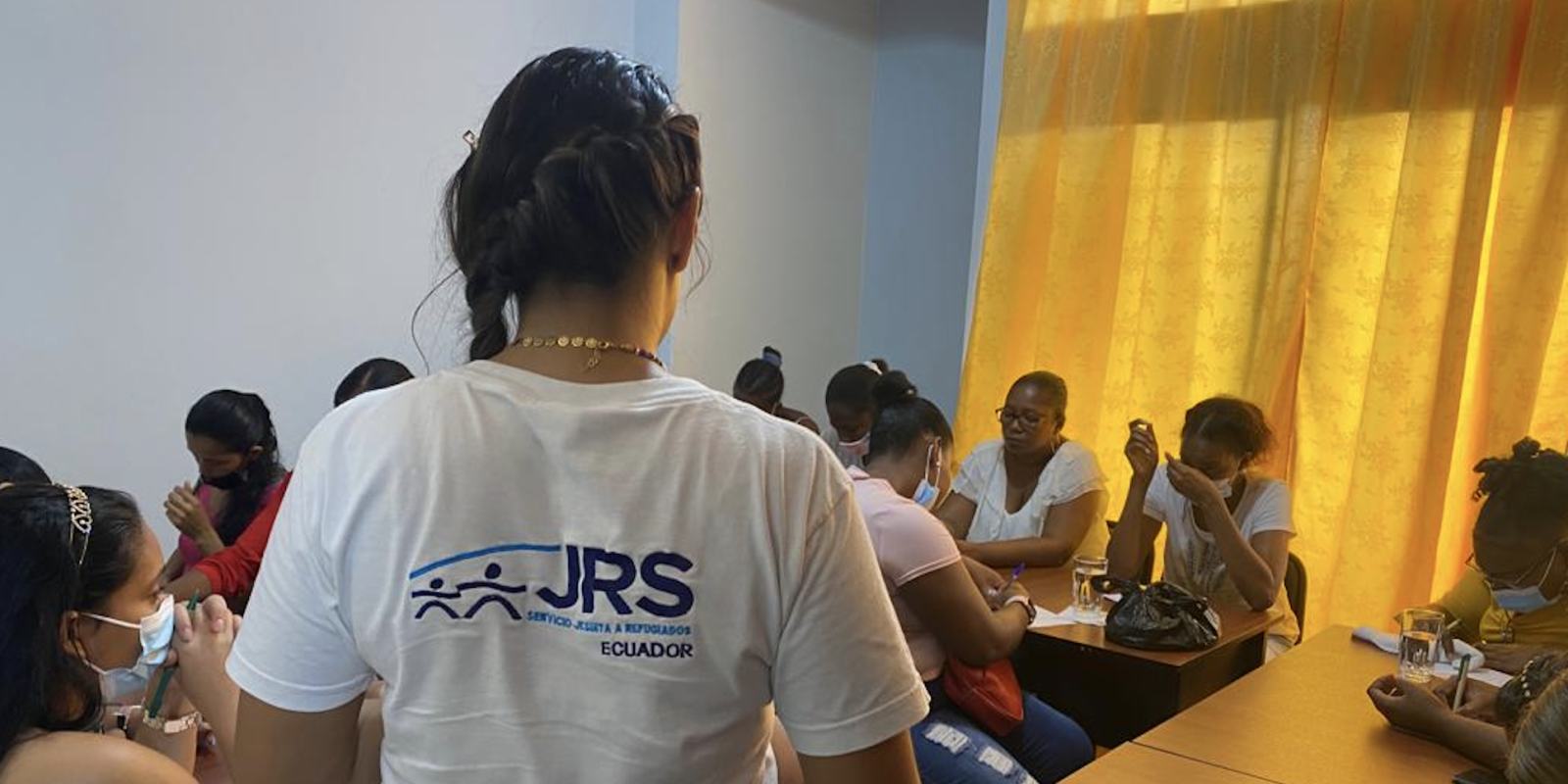JRS/USA & JRS/LAC: Regional Concerns Regarding Deportations and Protection Risks in the Americas
17 November 2023|JRS Latin America and Caribbean and JRS/USA
Refugees and displaced persons traveling through the Americas are experiencing the impacts of regional migration management policies focused on securitization and militarization that often resort to indiscriminate mass deportations.
The increase of deportations to countries of origin in the Americas places the lives of refugees and displaced persons at risk through exposure to persecution, rejection, torture, drug and human trafficking, threats from armed groups, revictimization, and negative consequences to their physical and mental health.
Indiscriminate deportation violates the right to migrate and the right to seek asylum for those who are fleeing persecution due to race, religion, nationality, membership of a particular social group, or political opinion, but also for reasons where their life, security, and freedom have been threatened by generalized violence, internal conflicts, violation of human rights, or other circumstances that have seriously disrupted public order.
Deportations are occurring across the region: the Dominican Republic has deported more than 185,000 individuals back to Haiti, while the country continues to see a rise in internal displacement due to violence between armed groups; the United States has deported thousands of individuals back to countries such as Nicaragua, Ecuador, Mexico and Venezuela; Mexico has deported individuals to El Salvador, Honduras, Cuba, and Guatemala; and Panama has deported individuals back to Colombia.
Other recent concerns include Peru passing Legislative Decree 1852 on November 14, 2023 that dictates the expulsion of all foreigners who entered the country irregularly and reduces the process to 48 hours. Mexico also made announcements to explore the possibility of expelling Ecuadorians who were denied entry in the United States and do not have regularized status. These expulsions challenge the principle of nonrefoulment, which is part of customary international law.
Mass deportations by governments reflect political interests rather than a long-term view focused on durable, comprehensive solutions. The Americas region has stood out for its progress in expanding the definition of Refugee through the Cartagena Declaration in 1984. Yet, the extensive use of mass deportations negatively affects this regional progress and effort to guarantee human rights.
The current migration policies in the region result in a lack of protection and criminalize forced migration, violating these human rights that should never be restricted, and challenge agreements such as the American Convention on Human Rights and the Charter of the United Nations.
With these concerns, JRS Latin America and the Caribbean, JRS/USA, and Encuentros SJM Peru call upon all governments throughout the region, especially the governments of the Dominican Republic, Mexico, the United States, Panama, and Peru, to observe, respect, and fulfill their international commitments and obligations towards refugees and forced migrants and to refrain from mass deportations that do not allow migrants to lawfully petition for safety.
We call for informed regional responses to migration that focus on their accompaniment and protection, centered on people and their rights. As an alternative to the militarized migration management approach, we propose a regional approach guided by the values of welcome, hospitality, and reconciliation.




